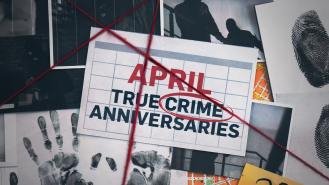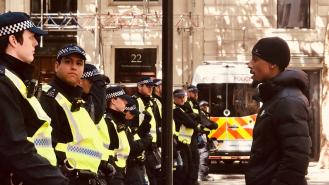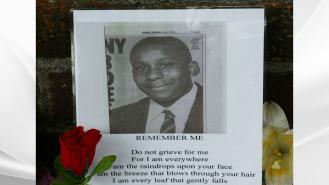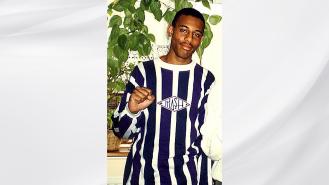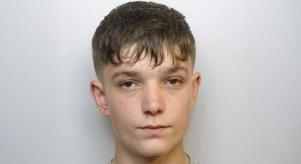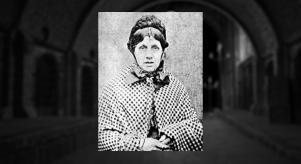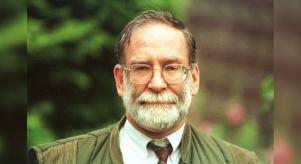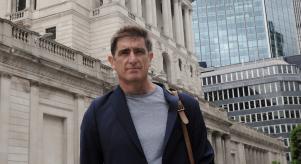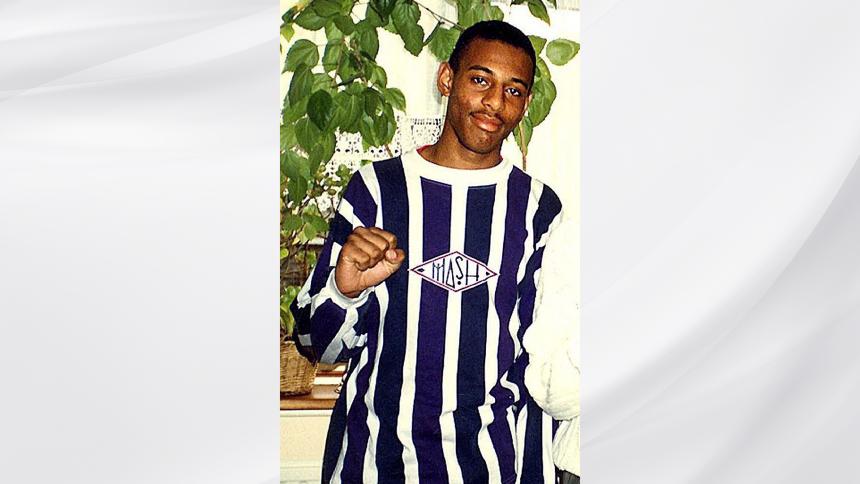
Racist murders since Stephen Lawrence
The racist murder of black teenager, Stephen Lawrence by a gang of white youths in the 1990s, highlighted racial tension in the UK. In the wake of the crime, the police were accused of being ‘institutionally racist’, after an investigation dogged by claims of corruption resulted in the white men accused of the crime being able to evade justice for years. It took until 2012 for two of them to be found guilty.
It was the kind of high profile case that demanded change and the impact of it, combined with the Macpherson Report that followed, promised that would happen. But almost 30 years later and how much really has?
In 2005, Stephen Lawrence’s mother Doreen accused the police of still being institutionally racist and the government of not doing enough. That same year, black teenager Anthony Walker was killed with an axe in another racially motivated killing. And he isn’t the only high profile victim of a racist murder in the years following Stephen Lawrence, to say nothing of the cases that haven’t received the same media attention.
In 1997, police found 30-year-old Michael Menson on the street in London after he had been set on fire. Thirty per cent of his body was covered in burns, which later led to his death, but police initially claimed it was suicide, despite the fact that he told four family members he had been attacked. Police failed to interview Menson before he died (even though his brother had repeated his report of an attack to them). It took 12 hours for police to launch a criminal investigation. And almost two years before they admitted that the murder was at the hands of a racist gang.
The year after Anthony Walker was murdered, 18-year-old Christopher Alaneme was fatally stabbed to death in Kent by a gang, following racist abuse and a confrontation that saw Alaneme chased. In 2007, Peter Connolly was jailed for the murder. Although Kent police treated the crime as racially motivated, the judge in Connolly’s trial decided otherwise. His death came on the eve of the 13th anniversary of Lawrence’s murder.
In 2007, Marlon Moran was killed by a gang following a campaign of racist abuse against him and his family. He was standing up to his attackers when he was stabbed to death. His family later said they were still being subjected to racist abuse and threats following his death, including seeing graffiti painted on their walls, banana skins left on windowsills and shouted threats. They later spoke out against the justice system for the treatment they had received from police and when four men went to trial, his family stayed away from the sentencing in protest. Although one man was jailed in Moran’s death, he was cleared of murder and imprisoned for manslaughter instead. Three other defendants went free. Moran’s uncle later disparaged the racial makeup of the jury on the case.
In 2009, Syden Pearson was also fatally stabbed, after being subjected to racist abuse. Kai Orgles was found guilty of the murder.
In 2010, the body of bus driver Kester David was found burned under a bridge. Despite his family insisting it was murder, police maintained David’s death was a suicide. David’s family claimed police were racially motivated and that they themselves were treated poorly because of their race. The case was also pointed to as an example of the police not doing enough to counteract systemic racism.
In 2012, the Insititute of Race Relations claimed there had been an average of five racist killings a year since Lawrence’s death in 1993 - although not all were classified as such by the courts - which pointed to the fact that those in power remained in denial about the issue of racial violence. More recently, in 2016, there came a 16% spike in hate crimes that police associated with the Brexit vote and in 2019, figures from the Home Office showed that hate crimes had doubled in five years in England and Wales, the majority of which were racial, which increased by 11% over a year.
While it’s clear that the UK hasn’t been cured of racism in the decades since Stephen Lawrence’s death, it’s also clear that it continues to be an issue within police forces, as well, often affecting investigations and in other cases, leading to further deaths. Just look at the black victims of police brutality in the UK: people like Mark Duggan, who was shot dead by police in 2011. Protests, then riots, followed.
Further figures from the Home Office released in 2019 revealed that only 1.3% of police officers in the UK are black. Black people were five times more likely to be stopped and searched by police and five times more likely to have force used on them in comparison with their white counterparts. Black people were also twice as likely to be detained under the Mental Health Act and almost twice as likely to die following contact with police.
As the protests over the murders of black Americans continues in the US, it is easy for those who haven’t the lived experience of racism to dismiss it as an American problem. But that’s not the case.
Those that have been personally affected by it, like the families of the victims, Doreen Lawrence, Gee Walker (who said 'racism’s a disease' and one that’s 'killing our children') continue to speak out. Their words remind us that in the decades since Stephen Lawrence was murdered - where the police were accused of a racist investigation and promises were made to do better - not enough has actually been done. Black people continue to die following racially motivated attacks and the investigations into their deaths continue to be criticised. Black lives matter and as in the US, that needs to be reflected within the UK’s justice system.
